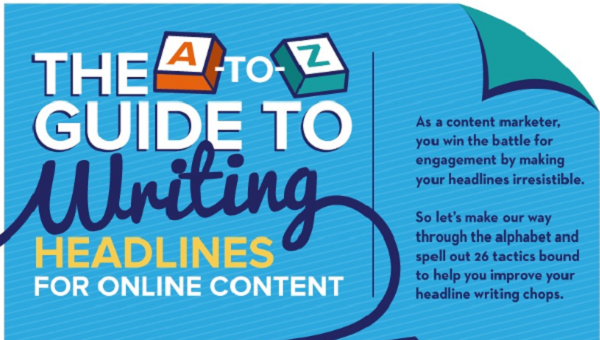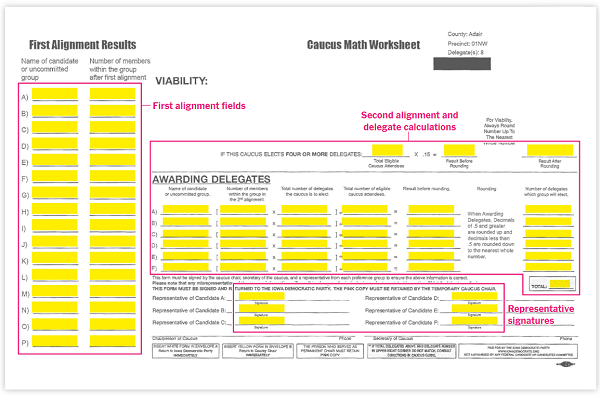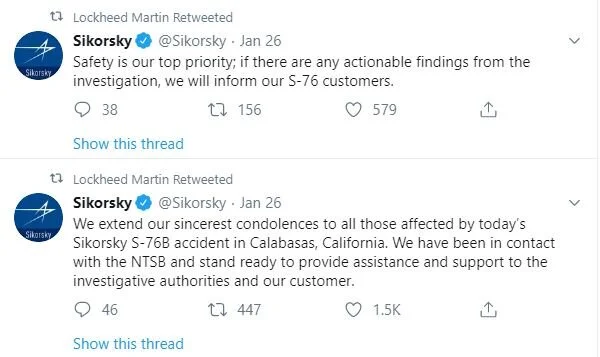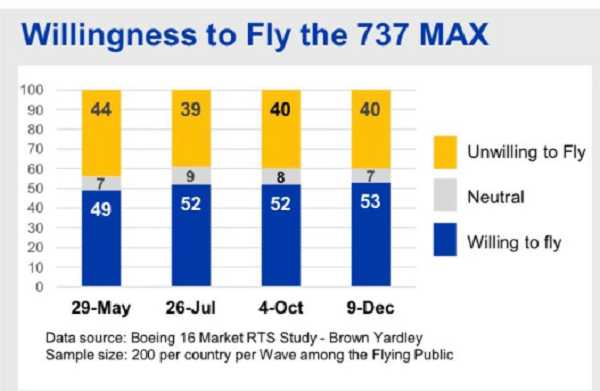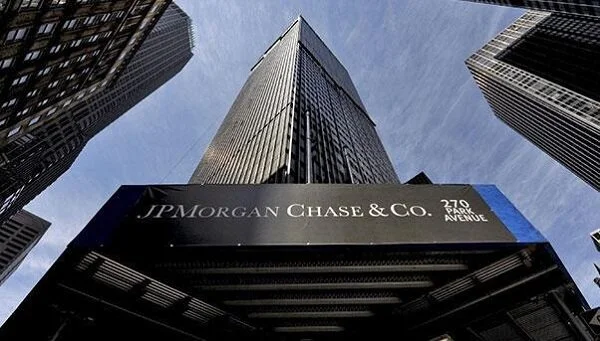Report Criticizes Airline Safety and Oversight
A U.S. Department of Transportation report criticizes the Federal Aviation Association and Southwest Airlines for lax safety standards. A New York Times article summarizes the report findings:
“The report found that the Federal Aviation Administration had allowed Southwest to routinely provide inaccurate data to pilots and to operate more than 150,000 flights on planes whose airworthiness had not been confirmed.
“The agency also failed to investigate concerns raised by its own representatives ‘ranging from senior executives to local inspectors’ over Southwest’s safety culture.”
The DOT includes “Four SMS Components,” the FAA’s own description to fault safety culture in both organizations.
Discussion:
What business communication principles are illustrated in the report? Who are the primary and secondary audiences, and how well does the report meet its communication objectives?
The report does a particularly good job of using “message titles” (also called “talking headings”). What are some examples?
What else do you notice about the report? Consider the writing style, organization, and other features. What could be improved?
Kids and Email and Phone Etiquette
A Wall Street Journal article tells us what we probably already know: kids could improve how they email and talk on the phone. Referring to email as seeming like “an ancient craft” and “so last century,” the author gives examples of missing subject lines and salutations.
An HR manager sees issues when young people are in the workplace and blames changing technologies:
“You can graduate high school without hardly ever having made a call. You can do everything online—book reservations, book an Uber. Teens aren’t hearing their parents make calls either. When I was younger, my parents did all of that out loud and I was learning by listening. You’d pick up all that etiquette.”
College students seem to have trouble with the phone as well. Employers tell me students are uncomfortable leaving voice mails and taking their calls.
The article lists basic etiquette guidelines for email from The Emily Post Institute’s Daniel Post Senning.
Discussion:
What guidelines would you add to the email etiquette list?
How did you learn email and phone manners? Or are you still learning?
How can you help your young siblings or other young people prepare for the workplace?
KFC and Crocs?
An unlikely pair, KFC and Crocs have partnered to create a shoe that looks and smells a lot like chicken. Thankfully, the KFC X Crocs Bucket Clog is a limited edition product.
Terence Reilly, Crocs SVP and CMO, explained the companies’ strategy in a news release:
"As Crocs continues to create new, unexpected brand collaborations, we're thrilled with this 'bucket list' partnership with Kentucky Fried Chicken that will bring fans an unbelievably fun and fashionable take on our classic clog. We're honored to feature this fashion-forward style between two iconic American brands at one of New York's biggest weeks in fashion that promises to surprise and delight consumers around the globe."
This isn’t the first time KFC created an unexpected product. In December, the company partnered with Enviro-Log to sell the 11 Herbs & Spices Firelog exclusively on Walmart.com. They sold out in just three hours. Sorry I missed that.
Discussion:
What persuasive strategies do these products illustrate? Consider Cialdini’s six principles and other models.
Am I the only one slightly repulsed by these products? Would you buy them?
Tips for Writing Headlines
An infographic written by Feldman Creative and designed by Infobrandz offers tips for writing headlines, particularly for online content. The advice focuses on capturing attention, which makes sense in our cluttered online world: posing a question, focusing on the reader, using a colon or m-dash, and using visceral language.
Read the entire infographic on Ragan.com. Some of this advice is useful for email subject lines, which may inspire receivers to read or delete your email.
Discussion:
Read the past 50 or so subject lines of emails you have received. Which of these principles are followed? What differences do you notice in marketing and other emails?
What advice do you find useful from the infographic for online content? What about email subject lines that you write?
Barnes and Noble Changes Course on Black History Month
To celebrate Black History Month, Barnes and Noble bookseller altered classic book covers with people of color. Reactions were not positive. The author L.L. McKinney explains her position:
“They're essentially just slapping a cover on it to 'celebrate diversity.' But a lot of us felt that you're just trying to cash in on the fact that it's Black History Month, and now all of a sudden, black faces and brown faces will sell books. Just maybe one, two years ago, people were saying in meetings, 'Yeah, you can't put black people on covers. It's not going to sell the book.'“
Discussion:
What’s your view of the original campaign? How would you describe the backlash?
Assess the statement from Barnes and Noble. How well did the company address and respond to concerns?
Apologies About the Iowa App
The New York Times published “everything that went wrong at the Iowa Caucases,” and it’s a long list about the app. The technology was untested and unfamiliar to volunteers, and connection problems prevented accurate data submission and reporting.
An opinion writer blamed “techno-utopianism and laziness” for the trouble: “The two fuel each other: The overarching belief that software will fix everything leads to slapdash engineering, procurement and deployment.”
Troy Price, the Iowa Democratic Party Chair, apologized for the “multiple reporting challenges.” He explains the decision to delay reporting to ensure “accuracy and integrity.”
The CEO of Shadow, the app company, also apologized:
“We sincerely regret the delay in the reporting of the results of last night's Iowa caucuses and the uncertainty it has caused to the candidates, their campaigns, and Democratic caucus-goers. As the Iowa Democratic Party has confirmed, the underlying data and collection process via Shadow's mobile caucus app was sound and accurate, but our process to transmit that caucus results data generated via the app to the IDP was not. Importantly, this issue did not affect the underlying caucus results data. We worked as quickly as possible overnight to resolve this issue, and the IDP has worked diligently to verify results. Shadow is an independent, for-profit technology company that contracted with the Iowa Democratic Party to build a caucus reporting mobile app, which was optional for local officials to use. The goal of the app was to ensure accuracy in a complex reporting process. We will apply the lessons learned in the future, and have already corrected the underlying technology issue. We take these issues very seriously, and are committed to improving and evolving to support the Democratic Party's goal of modernizing its election processes."
Discussion:
Analyze each of these apologies: the audiences, communication objectives, writing style, organization, delivery choice, etc. Each message has distinct purposes.
What works well in these statements, and what could be improved?
Wells Fargo Former CEO Banned
In what the Wall Street Journal calls “unprecedented” and “an extraordinary sanction for a top executive at a large bank,” former CEO John Stumpf has been barred from the banking industry. The decision—and a $17.5 million fine—were part of a settlement between Stumpf and the Office of the Comptroller of the Currency (OCC) for millions of fake bank accounts created at Wells Fargo.
The OCC concluded that Stumpf should have known of the systemic problems and that “there was a culture in the Community Bank that resulted in systemic violations of laws and regulations.” When the scandal became public, employees complained of extreme stress because of pressure to sell more bank products. This pressure led employees to create fake accounts for customers.
Other Wells Fargo executives have been fined and charged, but none have been banned from the industry.
Discussion:
Do you think the decision is fair? Why or why not?
This decision represents a shift from the 2008/2009 financial crisis, when banks paid significant fines but very few individuals were charged. What’s your view of the change?
Communications About Kobe Bryant
NBA superstar Kobe Bryant, his daughter, and seven others died in a helicopter crash, and many are mourning the loss. At the Emmy’s, celebrities paid tribute to his life, and the NBA postponed a Lakers—Clippers game.
The helicopter company, Sikorsky, owned by Lockheed Martin, posted two tweets and a short statement on its website:
We extend our sincerest condolences to all those affected by the January 26th Sikorsky S-76B accident in Calabasas, California. We have been in contact with the NTSB and stand ready to provide assistance and support to the investigative authorities and our customer. Safety is our top priority; if there are any actionable findings from the investigation, we will inform our S-76 customers.
Discussion:
Analyze the Sikorsky messages. Who are their primary and secondary audiences? What are the communication objectives, and how well did the company achieve them?
Have you seen other communications from Sikorsky? Should the company do or say more? If so, what?
Starbucks' Sustainability Commitment
Starbucks CEO Kevin Johnson published a statement of the company’s commitment to sustainability, outlining several new initiatives. Johnson explains the rationale for the commitment, what the company has already done, and what plans are in place for the future.
The message lists three “preliminary targets” for 2030:
A 50% reduction in carbon emissions in our direct operations and supply chain.
50% of our water withdrawal for direct operations and coffee production will be conserved or replenished with a focus on communities and basins with high water risk.
A 50% reduction in waste sent to landfill from stores and manufacturing, driven by a broader shift toward a circular economy. To underscore this commitment, we are pleased to join Ellen MacArthur Foundation’s New Plastics Economy Global Commitment, setting ambitious circular targets for our packaging.
Discussion:
Analyze the statement: the audience, communication objectives, organization, writing style, etc. What works well, and what could be improved? Why is “preliminary targets” italicized?
How well does the company meet its communication objectives with this message?
How, if at all, does this message change your perception of Starbucks?
Panera Extends Social Media Listening
Panera responded to complaints about its Bistro French Onion soup with a clever approach: hiring the character Phyllis from “The Office” TV show.
The restaurant chain had promised that the soup would return, but it didn’t, and fans protested on social media. In addition to actively responding to customer complaints on social sites, Panera created a video showing a fake social media manager and Phyllis, as a social media coordinator.
The approach shows that Panera is listening and responding to customers, and it helps customers see the company’s point of view.
Discussion:
What’s your view of the video? How would you describe the potential impact in a few words?
More specifically, what are the communication objectives for this video message? Consider the audience and what the company hopes customers will do, think, and feel differently after watching the video.
Emails Show USC's Potential Role in the Admissions Scandal
Actress Lori Loughlin and her fashion-designer husband Mossimo Giannulli have been charged with bribing University of Southern California athletic officials to get their daughter admitted. Now emails from USC show that the school was courting them by asking for donations and arranging for personalized campus tours. In one email, a university official wrote, “I’d also be happy to flag her application.”
A New York Times article summarizes how accused parents plan to defend themselves against charges:
Motions by several of the defendants suggest they will argue, essentially, that they could not have defrauded the university, as prosecutors say, because the university was actively seeking such donations and offering a leg-up in admissions in return.
In a statement, USC downplayed the special treatment:
“What was being offered to the Giannullis was neither special nor unique. Tours, classroom visits and meetings are routinely offered. The primary purpose of a flag is to be able to track the outcome of the admission review process. It is not a substitute for otherwise being qualified for admission to USC.”
Parents are expected to say that their donations were legitimate, but USC is expected to say that the bribery was specific to the crew team official, who “agreed to pass the couple’s two daughters off as coxswains.”
Discussion:
What’s your view of this situation? Do you agree more with the parents’ or with the school’s perspective?
What, if anything, do the school’s emails reveal? Consider this message to the parents: “Please let me know if I can be at all helpful in setting up a 1:1 opportunity for her, customized tour of campus for the family, and/or classroom visit?”
Carlos Ghosn's News Conference
Former head of Nissan Motor Co. and Renault SA Carlos Ghosn delivered a news conference from Lebanon after his escape from Japan. Ghosn was arrested in Tokyo in 2018 for misreporting income and misusing company funds. He left through a well-orchestrated exit in a box by private plane to his home country.
In what the Guardian calls “a lengthy and often rambling press conference in Beirut,” Ghosn spoke in four languages to defend himself. He criticized the Japanese criminal justice system and accused the Japanese government of working with Nissan executives to conspire against him.
Ghosn was adamant about his innocence:
“I don’t consider myself as a prisoner in Lebanon. I prefer this prison to the one before. I am ready to stay a long time in Lebanon, but I am going to fight because I have to clear my name.”
The Japan Times reports that the new conference “will have done little to turn the tide of public opinion in Japan and restore his reputation, which has been tainted by his alleged financial wrongdoing.” A former prosecutor in Japan said, “Ghosn didn’t have anything substantive to say. If he wants to restore trust, he shouldn’t do a self-absorbed speech like he did, but he should calmly make specific explanations and present evidence supporting those explanations.”
Discussion:
Watch parts of the news conference. How well does Ghosn restore his image and prove his innocence?
How should Ghosn communicate differently if he wants better outcomes?
Wells Fargo Earnings Call
The Wells Fargo scandal of creating fake accounts became public in 2016, and the company is still suffering the repercussions. Profit is down 53%, and stock performance is lagging.
On an earnings call, Charles Scharf, who has been the CEO since October 2019, explained the bank’s current position:
I was honored to be chosen to lead Wells Fargo because I believe this is an extraordinary company that plays an important role in this country. We came out of the financial crisis as the most valuable and most respected bank in the US, but as you know, we made some terrible mistakes and have not effectively addressed our shortcomings. These circumstances have led to financial underperformance, but we have one of the most enviable financial services franchises in the world and employees that want to do what's necessary to again be one of the most respected and successful banks in the US.
Discussion:
Read the earnings call transcript. What’s your view of how Scharf and John R. Shrewsberry, EVP and CFO, addressed concerns?
How well has the bank recovered its image since 2016? What examples of their communications can you cite?
What could bank executives have done differently in the past four years?
How well does the line chart work to compare Wells to other leading banks? What could be improved?
WSJ Opinion About Boeing Emails
A Wall Street Journal writer argues that Boeing employee emails “explain nothing.” A previous WSJ article concluded that emails demonstrated a “cavalier attitude towards safety,” and a Reuters article concluded that employees “distrust the 737 MAX” and “mock regulators.”
The opinion writer, Holman Jenkins Jr., argues, “all of corporate America, not just Boeing, lives these days by employing creative, freethinking people who spout off acerbically, critically and colorfully in electronic messages.” Jenkins questions the reporting of these emails and what is omitted.
Jenkins also asks why these employees didn’t write about MCAS design flaws: “If the hypercritical people seen in these messages had known about MCAS’s design flaws, it never would have gotten through.” He also notes that the only emails referring to MCAS were from 2013, although system changes were made in 2016.
Discussion:
Read Jenkins’ article. What do you consider to be his strongest and weakest arguments?
Based on his argument and your own reading of media reports, what’s your opinion about the significance of the emails?
What issues of integrity does this situation raise?
Boeing Internal Documents Don't Reflect Well on Safety
The lead article in today’s The Wall Street Journal is titled, “Internal Boeing Documents Show Cavalier Attitude to Safety.” In 150 pages of emails and other documentation, employees worry that they don’t have enough time to correct safety issues and refer to regulators as “morons” and “stupider.”
In February 2018, one employee wrote, “Would you put your family on a MAX simulator trained aircraft? I wouldn’t.” A pilot wrote, “I still haven’t been forgiven by god for the covering up I did last year. Can’t do it one more time. Pearly gates will be closed.” Still another employee wrote, “This airplane is designed by clowns, who in turn are supervised by monkeys.”
A defense attorney argues that employees were just “blowing off steam” in their emails.
In the past few months, Boeing’s culture has come to light—once lauded as a place where people felt proud to work but now a place where people feel stressed and remorseful. CEO Doug Muilenberg has since been terminated and replaced temporarily by CFO Doug Smith.
Discussion:
Read more about the internal communications. What lessons can employees and their managers take away from this story?
What’s your view of the emails? Do they indicate big problems at the company, or is the attorney right that employees are just venting to each other? How does the concept of “cherry picking” come into play?
What should Boeing do to manage this situation? Consider this news in light of the company’s crisis communication planning you read about in another post.
Facebook Memo Goes Public
Facebook executive Andrew Bosworth wrote a 2,551-word memo about the company’s role in the upcoming election and more. Bosworth compliments President Trump’s use of Facebook ads and admits that the site impacted the 2016 U.S. election. A Vox article describes Boswell’s logic:
Bosworth’s memo has much more in there, which is getting plenty of deserved attention, including the assertion that Facebook did indeed help Donald Trump win the 2016 election — by giving him the tools to run “the single best digital ad campaign I’ve ever seen from any advertiser. Period.” And the memo also reveals that Bosworth, a self-described “committed liberal,” fantasizes about using Facebook to prevent Trump from winning in 2020, but won’t.
The memo is also attracting attention because Bosworth compares Facebook to sugar and places responsibility on the user: “At the end of the day we are forced to ask what responsibility individuals have for themselves."
Bosworth ends the memo with a question:
To bring this uncharacteristically long and winding essay full circle, I wanted to start a discussion about what lessons people are taking away from the press coverage. My takeaway is that we were late on data security, misinformation, and foreign interference. We need to get ahead of polarization and algorithmic transparency. What are the other big topics people are seeing and where are we on those?
Discussion:
Read the entire memo . What surprises you most?
How damaging is the memo to Facebook’s image, particularly with another election coming up? How does a memo like this—posted on an internal site—become public?
What business writing principles does Bosworth follow, and how could he improve the memo?
Boeing's Crisis Communication Plan
During the holiday break, several news items about Boeing were relevant to business communication and character. In one article, the New York Times revealed internal Boeing documents showing a company trying to rebuild its image after two MAX crashes within a year..
The documents give us an inside view of how the company plans to use persuasive strategies to win back customers. In one graphic, we see customers’ willingness to fly. In another, we see customer concerns and ways Boeing can address them, for example, with FAQ cards, “pilot confidence videos,” or personal connections (for example, “Flight attendant offers comfort and information on the safety of the MAX”).
Discussion:
What persuasive strategies does the company plan? Try to find examples of logical argument, emotional appeal, and credibility.
What are the consequences of this information becoming public? Does it likely endear the public to the company’s concerns, embarrass the company, or something else?
Accountability in the News
Two situations this week remind us that CEOs should take accountability for mistakes in their companies.
On an investor call, Home Depot CEO Craig Menear said retail theft is on the rise:
“This is happening everywhere in retail. We think this ties to the opioid crisis, but we’re not positive about that.”
Menear faced criticism on Twitter for blaming the opioid crisis rather than taking responsibility for product loss at a warehouse.
On another call, Costco CFO Richard Galanti talked about losses because of a website crash:
"It was unfortunate. Despite all the efforts to have plenty of processing capacity, if you will, there was something that occurred." He also acknowledged, “[W]e did leave something on the table.”
In both situations, the executives could be more direct.
Discussion:
Do you agree with my assessment? Why or why not?
What evidence should Costco provide to back up its claim?
What else could the executives have said differently? (Hint: Note Galanti’s use of passive voice.)
In addition to accountability, what leadership character dimensions are illustrated by these examples?
Best Places to Work: Facebook and Google Slip
Glassdoor published its annual list of the Best Places to Work, and HubSpot is the winner. Glassdoor uses the following criteria for their ranking:
A mission to believe in
A strong culture
People focused
Transparency
Facebook fell to 23 after placing first in three of the past 20 years. Google feel below the Top 10 for the first time in eight years.
Here’s the 2020 list:
HubSpot
Bain & Co.
DocuSign
In-N-Out Burger
Sammons Financial Group
Lawrence Livermore National Laboratory
Intuitive Surgical
Ultimate Software
VIPKid
Southwest Airlines
Discussion:
Why do you think Facebook and Google have slipped in the Glassdoor rankings?
What surprises you about the Top Ten? What doesn’t surprise you?
Is your favorite company on the full list? How does the ranking affect your view of the company?
JPMorgan Recorded Phone Conversation
Jimmy Kennedy, an African-American former National Football League player, tried to open a private wealth account at JPMorgan but had trouble getting attention. He recorded a conversation with an African-American employee, Richardo Peters, who said, “You’re bigger than the average person, period. And you’re also an African-American. We’re in Arizona. I don’t have to tell you about what the demographics are in Arizona. They don’t see people like you a lot.”
In a New York Times article that published the recording, Peters recounted a specific example of discrimination against a Black customer. When he was trying to bring on another new client, who had received a large settlement, his manager said, “You’ve got somebody who’s coming from Section 8, never had a nickel to spend, and now she’s got $400,000, What do you think’s going to happen with that money? It’s gone.” His manager’s position was that the customer would not invest money with the bank.
Other incidents at the bank led to Peters’ termination, and he is suing for racial discrimination. JPMorgan also recently settled a class-action lawsuit for $24 million to Black employees who claimed discrimination: according to a New York Times report, “in some cases by isolating them from colleagues and dumping them in poorer branches.”
A few days later, CEO Jamie Dimon addressed the situation in a memo to employees.
Discussion:
How do you assess this situation at JPMorgan? Read more in the NYT article.
A February Essence article describes and praises JPMorgan’s Advancing Black Pathways program to support the Black community. What’s your view of the effort in light of this news?
How do you assess CEO Jamie Dimon’s response in the memo? We don’t see the entire memo, but CNBC posted quotes.







